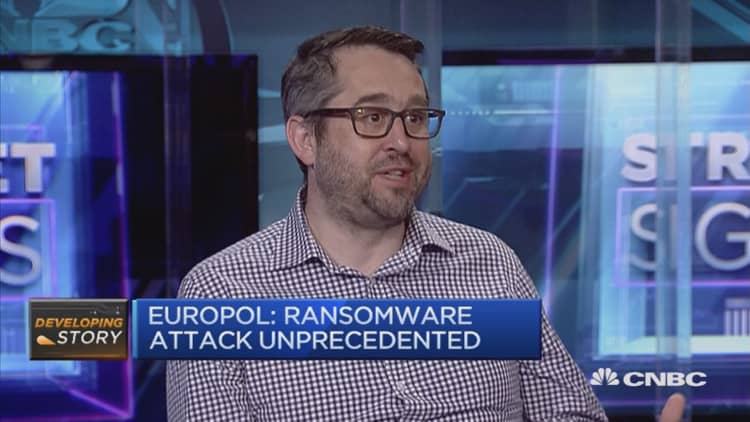
Hackers who infected over 200,000 computers with the WannaCry virus used an exploit in Microsoft's Windows operating system that was originally discovered by the U.S. National Security Agency (NSA), and this trend could continue, security experts have warned.
The ransomware – which locks files on a computer and demands payment in bitcoin to unlock them – was able to exploit a vulnerability known as "Eternal Blue". This security flaw was unknown to Microsoft for a while but used by the NSA.
But last month, a group called Shadow Brokers managed to steal the files and leak them online. Microsoft had a so-called patch for this in March, but many of the computers affected by the WannaCry worm hadn't updated.
"As governments all over the world invest in finding weaknesses in computer systems we are going to continue to see organizations exploiting these," James Chappell, chief technology officer at London-based
"In this case, these weaknesses were made public which is why this has really happened. We have not seen this publication of these exploits being used in this way before and I suspect we will see many more of those to come."
In March, Wikileaks released 8,761 documents and files outlining the Central Intelligence Agency's (CIA) hacking toolkit, that was aimed at exploiting flaws in Apple, Samsung and Microsoft. The continued leak of information about the holes in technology firms' software has worried the companies.
Microsoft's chief legal officer Brad Smith wrote a blog post on Sunday warning about continued government surveillance practices.
"The governments of the world should treat this attack as a wake-up call. They need to take a different approach and adhere in cyberspace to the same rules applied to weapons in the physical world. We need governments to consider the damage to civilians that comes from hoarding these vulnerabilities and the use of these exploits," Smith said.
Another concern is that as details about security exploits are leaked, it is becoming easier for would-be hackers to buy toolkits online. They require very little technical knowledge to
"There are stockpiles of the most sophisticated cyber exploits up for sale. There is a whole marketplace if you want to hack and you don't have to be good at it," Emily Orton, co-founder of U.K. cybersecurity firm Darktrace, told CNBC by phone on Monday.
"You can buy these things and launch them. The barriers of entry to hacking are going down."





